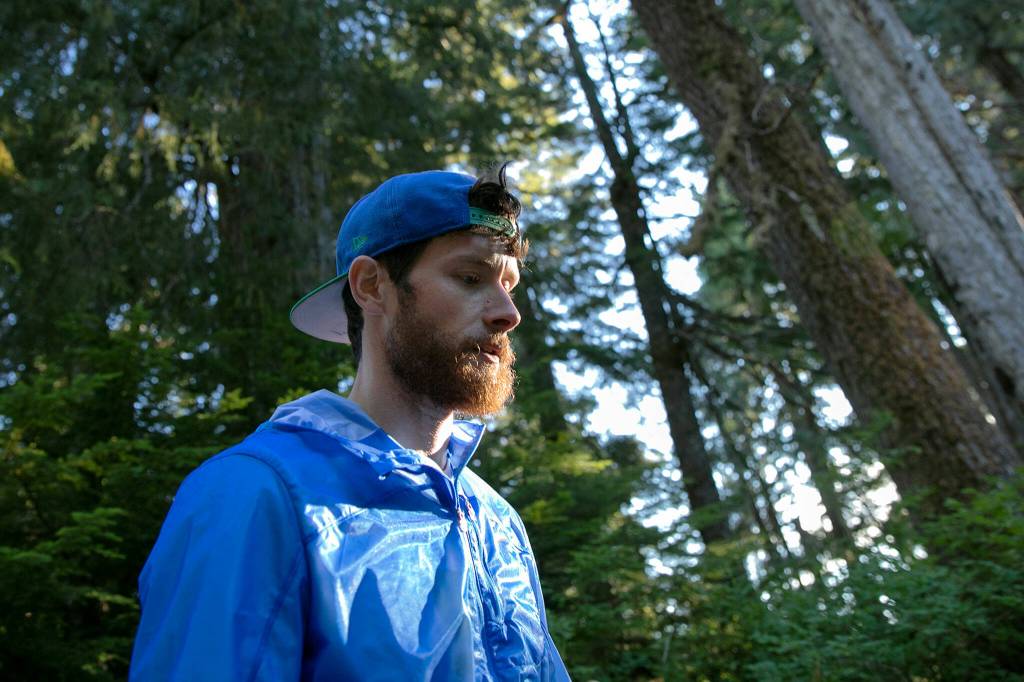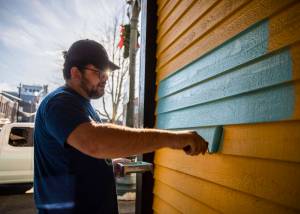From Puget Sound to Pilchuck, marathon runner finds path to recovery
Published 1:30 am Saturday, September 3, 2022









GRANITE FALLS — When he ran across the Miami Marathon finish line in 2019, an unexpected shower of champagne on Greg Nance’s jersey stopped him in his tracks.
Nance had just finished his seventh marathon in seven days on seven continents. He began by running 27 miles on solid ice outside an airstrip from a decommissioned Soviet research station in Antarctica — a little extra distance because the track was measured wrong. Then he traveled to the cities of Cape Town, South Africa; Perth, Australia; Dubai, United Arab Emirates; Madrid, Spain; Santiago, Chile; and Miami.
His body ached but the bubbly spray was the most painful thing he would ever experience. The ultramarathon runner went back to his hotel room that night and texted people in search of painkillers for the first time in nearly a decade. He woke up the next morning in a daze, terrified of how close he got to relapsing.
Fast forward three years and Nance, 33, has turned that near-relapse into motivation to help others in crisis. This summer, Nance ran 3,156 miles from Long Island, New York to Ocean Shores, Washington. He burned through 524,412 calories and three pairs of Brooks running shoes, with a mission to raise money for youth mental health.
The Daily Herald met Nance before he went for a morning run up Mount Pilchuck, one of his favorite trails, to learn about his journey to recovery. Nance holds the fastest known time record for a sea-to-summit run from the Everett waterfront to the Pilchuck summit. In July 2021, he ran the 40.3-mile route, climbing nearly 7,000 feet of elevation in 7 hours and 11 minutes.
‘Rough seasons’
Growing up on Bainbridge Island, Nance fell into depression at 16 when his grandfather Charlie died. He turned to painkillers and alcohol to cope and spent six years struggling with addiction.
As a student at the University of Chicago, he ran long distances through the city, along the Lake Michigan waterfront. Running put his body into what he called a “meditative autopilot” he couldn’t find elsewhere.
The lakefront loops got longer and longer. He started running marathons.
“I was still drinking too much, still drugging,” he said. “But I at least had an outlet now, that was showing me, ‘Hey, there’s a life beyond that.’”
He would wake up hungover and run the shame off. Then he’d get intoxicated all over again.
In 2011, Nance ran his first ultramarathon. At the end of that year, the Bainbridge Island man got sober. Along with running, community service has been crucial to Nance’s healing.
This year, he launched the Run Far Foundation, an organization dedicated to youth mental health through funding for volunteer projects and outdoor activities.
“Something that really, really worked for me was getting to work with kids,” he said. “To say, ‘I’m a role model for this guy, and I want to be the right kind of role model.’”
The foundation offers startup grants in all 50 states. The grants range from $100 to $500.
“A lot of time as a young person, you’re full of energy and have all these great ideas, but you don’t have the money to buy the gear you need to run,” he said.
The grants have been used to buy running shoes for children, host community picnics and set up mentoring events.
When Nance ran this summer through 14 states across the country — the equivalent of 120 marathons — he raised over $110,000 for the Run Far Foundation.
“Fortunately, I’m now in a place in my journey where I can pay it forward,” he said. “I want to help young people build resilience so when tough stuff happens, which it will, they are more equipped to deal with it and more equipped to be there when other folks are going through their own rough seasons.”
‘Like freedom’
During his run across the United States, Nance burned about 6,500 calories daily.
“It’s hard to eat that much, especially when you’re running,” he said. “That was one of the biggest challenges — staying fueled.”
The runner said one go-to snack before a big run is a bagel with peanut butter. And after the run, he loves to make a “massive omelet” or other protein-packed meal. Above all, Nance said he is in heaven whenever he can get his hands on a slice of key lime pie.
In August, Nance ran from the Puget Sound to the summit of Mount Rainier. The 85-mile ascent up the 14,411-foot peak took him nearly two days, including a break to sleep.
Most of his training runs to prepare for that trip were “short, sweet and slow.”
“My first few seasons, I had a lot of issues from trying to go too hard,” he said. “Now, my bread and butter is 2-, 3- and 4-mile runs, with a couple longer runs weekly.
When asked what his ideal mile time is, Nance said it all depends on the terrain. On a technical trail with loose rock, a 20-minute mile may actually be really fast, he said.
Nance monitors his heart rate with a smart watch, which he finds is a better proxy for exertion. For his run across America, he aimed to maintain 110-beat-per-minute heart rate. If he went much higher than that, he would slow down the pace, he said.
The record-setting runner said pump-up jams are one major key to his success. One day, he listened to a remix of the song “Waiting on the Summer” by VHS Collection over and over again for a 12-hour run.
“It hits,” he said with a smile. “The song even got a seal of approval from my 7-year-old niece.”
Nance said he wants to start running clubs in Snohomish County and offer grants to local youth. Those interested in applying for funding can do so on the Run Far Foundation website.
Running saved Nance’s life, he said, and he wants to help others find hope in it. He will never forget his first run in early sobriety through the English countryside, near Cambridge, past orchards and rolling hills.
“I was getting high from a natural, clean, burning source,” he said. “As opposed to smoking something, taking pills or drinking. It felt like freedom.”
Ellen Dennis: 425-339-3486; ellen.dennis@heraldnet.com; Twitter: @reporterellen.













